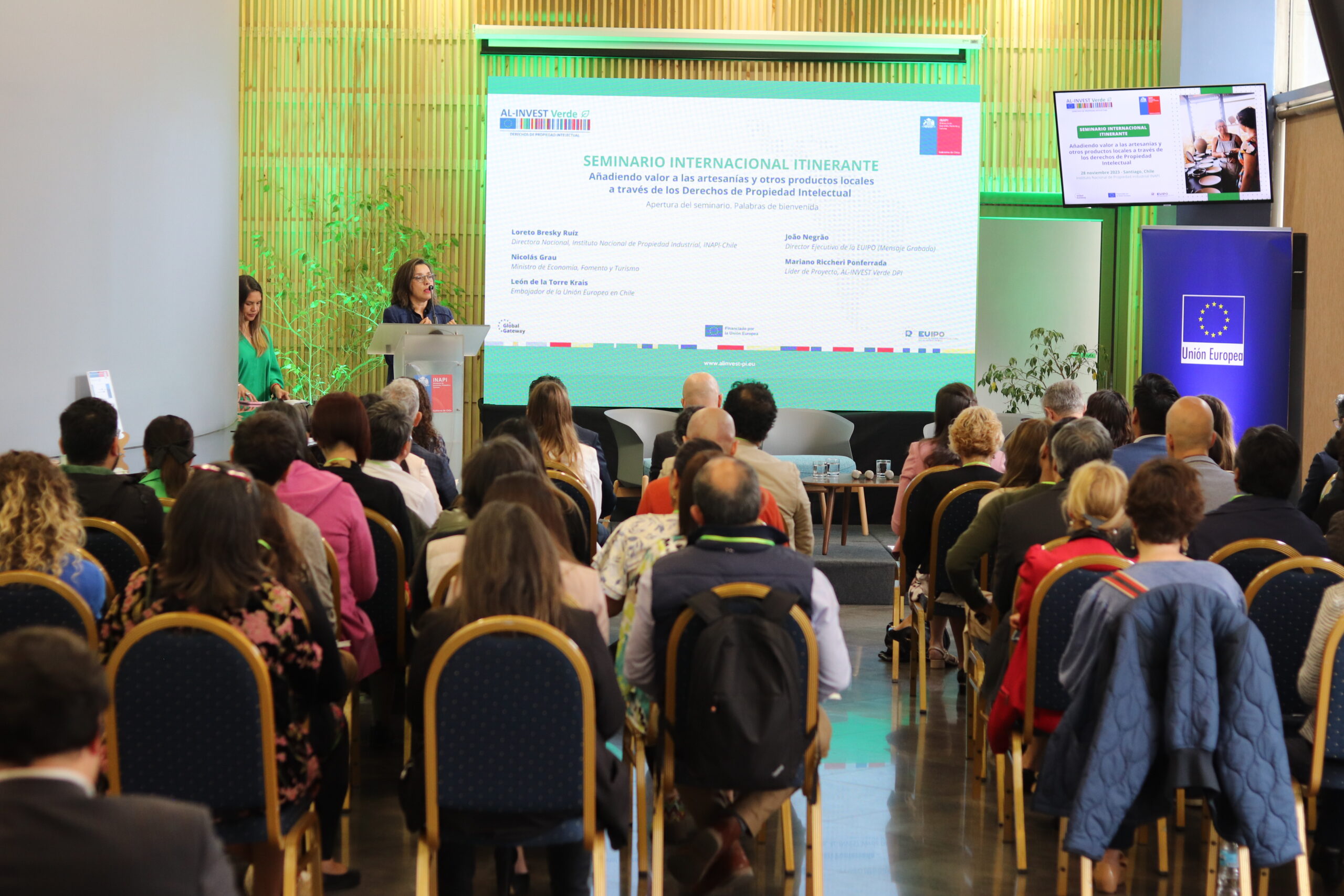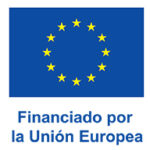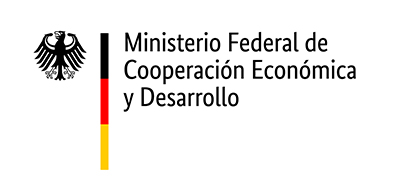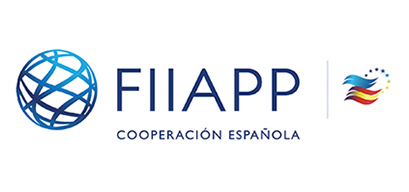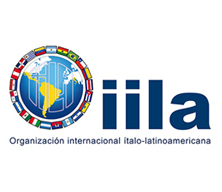Santiago de Chile and Chimbarongo (Chile), 29 November 2023. The National Institute of Industrial Property (INAPI) of Chile and the European Union's AL-INVEST Verde Intellectual Property Rights (IPR) project have established a partnership to strengthen the use of intellectual property in the country's economic and technological development.
The initiatives were unveiled in the framework of the international seminar "Adding Value to Handicrafts and other Local Products through Intellectual Property Rights", jointly organised by the two institutions in Chile.
Among the main actions to be carried out, the study will be updated. "The economic contribution of IPR-intensive sectors in Chile".with a special focus on green patents. This analysis will provide crucial information on the impact of industrial property on sustainable development and the promotion of green technologies, encouraging authorities, companies (especially SMEs) and the public to adopt innovative approaches.
In the area of recognition of women inventors, a special celebration will be promoted, an INAPI initiative with aspirations to be extended to other countries in the region. This celebration, supported by AL-INVEST Verde DPIwill focus on highlighting women's contributions to invention, underlining the importance of patent registration and seeking to to inspire greater female participation in the field of innovation.
In addition, an initiative will be launched that focuses on the intersection between research, development and the wine industryusing the IPRs to combating climate change through sustainable innovation. This initiative, part of the WIPO GREEN project, will facilitate the connection between suppliers and seekers of sustainable technologies.
International experts
The collaborative initiatives were announced in the framework of the international seminar "Adding Value to Handicrafts and other Local Products through Intellectual Property Rights", especially Geographical Indications (GIs), organised by AL-INVEST Verde DPI together with INAPI.
The travelling seminar, which took place on 28 November in Santiago de Chile and on 29 November in the commune of Chimbarongo, featured international experts, who addressed the following topics government support programmes, marketing strategies and crucial elements for success in safeguarding and promotion of handicrafts in Chile.
The meeting also discussed the new European Union legislation on artisanal and industrial GIseffective 17 November 2023, the scope of which transcends borders, opening up possibilities of protection for GIs from all signatory countries of the Geneva Act of the Lisbon Agreement within the European Union.
Among the international speakers in the panel discussions, the participation of Pilar Montero, director of the Magister Lvcentinvs of the University of Alicante (Spain); Renaud Gaillard, regional advisor on Intellectual Property at INPI (France); and Ray Augusto Meloni García, founding partner of MCG Law Firm and expert in protection strategies for Peruvian GIs at the international level (Peru), stood out. In contrast to the international character of the speakers, the seminar also had a strong local component, characterised by the presence of artisanal producers from the regions of O'Higgins and Maule.
In addition, the Executive Director of the European Union Intellectual Property Office (EUIPO), João Negrão, opened the international seminar online. During his speech, Negrão highlighted how "the protection of GIs contributes to preserving high quality traditional products and knowledge and the jobs linked to them, as well as attracting sustainable tourism and boosting regional development".
You can watch part of his recorded video message here.
The Chilean Government, through the National Institute of Industrial Property (INAPI) of the Ministry of Economy, Development and Tourism, is an important partner of AL-INVEST Verde DPI.
The EUIPOThe European programme component's implementing institute and INAPI share a long history of cooperation on intellectual property, with the two institutions being listed among the world's most innovative trademark offices by the trade press in 20226. New inventions, such as those protected by patents, are essential on the road to innovation. In Chile, 49.9% of Gross Domestic Product (84.3 billion pesos) was generated by IP-intensive companies between 2014-2019.
Small and medium-sized enterprises (SMEs) are fundamental pillars of innovation and economic growth, both in Europe and in Chile. According to the European Commission in its 2022/2023 annual report on European SMEs, they contribute significantly to economic activity and job creation in the European Union. In Chile, the relevance of small innovative and creative producers is equally prominent. In the technology sector, approximately half of all patent applications filed by companies with Chile's National Institute of Industrial Property over the past two years have come from SMEs.
In addition, at the local Chilean level, there is active participation of small and micro-enterprises in national craft sectors such as folk weaving, basketry, carving, goldsmithing and textile production. Intellectual property protection, especially through rights such as geographical indications, plays a crucial role in preserving these high quality products and traditional knowledge, as well as in maintaining related jobs. This also fosters sustainable tourism and boosts regional development.
About AL-INVEST Verde
AL-INVEST Verde is a European Union (EU) programme whose main objective is to promote sustainable growth and job creation in Latin America by supporting the transition towards a low-carbon, resource-efficient and more circular economy. Through Component 3: AL-INVEST Verde IPR, led by the European Union Intellectual Property Office (EUIPO), the programme seeks to achieve greater use and effectiveness of intellectual property rights in Latin America, particularly in the MERCOSUR countries and Chile, to boost opportunities for research cooperation and stimulate competitiveness and sustainable innovation.

